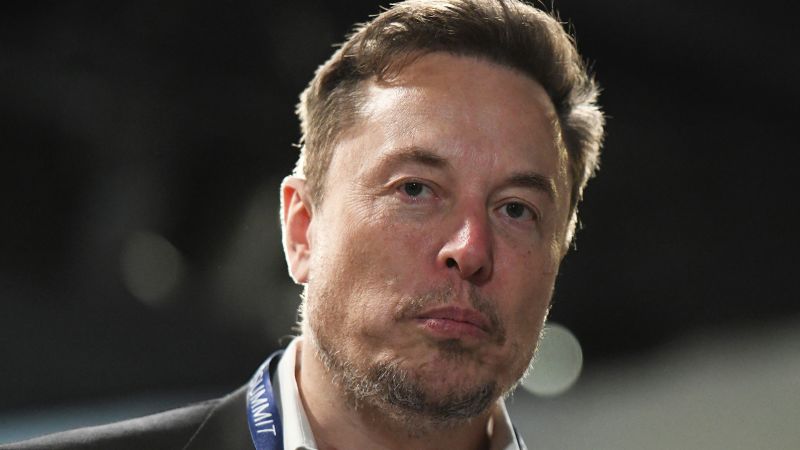Israeli President Isaac Herzog is expecting to meet with Elon Musk on Monday as the world’s richest man continues to face a firestorm of criticism over his public endorsement of an antisemitic conspiracy theory on his social media platform, X.
Musk is scheduled to meet with Herzog behind closed doors during a visit to Israel on Monday afternoon, where the president will emphasize the need to combat rising antisemitism online, according to the president’s office.
In a statement, the president’s office said that representatives of the families of hostages held by Hamas were also expected to join the meeting, where they would share “the horrors of the Hamas terror attack on October 7, and of the ongoing pain and uncertainty for those held captive.”
Musk did not immediately respond to requests for comment through X or two of his other most prominent companies, Tesla and SpaceX. X and Tesla no longer maintain regular communications with the media, following Musk’s takeover of the social platform last year and the automaker’s disbanding of its public relations team in 2020.
The billionaire’s visit to Israel comes more than a week after he agreed with the claim that Jewish communities push “hatred against Whites,” leading to a rebuke from the White House and a major exodus of advertisers on X, the platform formerly known as Twitter.
In an X post earlier this month, one user had accused Jewish communities of “pushing the exact kind of dialectical hatred against whites that they claim to want people to stop using against them.” The post also referenced “hordes of minorities” flooding Western countries, a popular antisemitic conspiracy theory.
In response, Musk said: “You have said the actual truth.”
The antisemitic conspiracy theory that Jews want to bring undocumented minority populations into Western countries to reduce White majorities in those nations has been espoused by online hate groups.
Musk, in subsequent posts at the time, said he did not believe hatred of White people extends “to all Jewish communities.”
But he said the Anti-Defamation League (ADL), an organization that fights antisemitism around the world, “unjustly attacks the majority of the West, despite the majority of the West supporting the Jewish people and Israel. This is because they cannot, by their own tenets, criticize the minority groups who are their primary threat.”
The comments — which coincide with a surge in US hate crimes against both Jews and Muslims — drew swift condemnation from human rights groups, as well as politicians.
Musk has since denied accusations of racism, writing on X last week that any claims that he is antisemitic couldn’t “be further from the truth.”
For X, the issue is proving too difficult to ignore. The controversy has fast turned into a huge commercial headache for the company, with at least a dozen major brands halting ad spending as of last Wednesday. They include Disney, IBM, Fox Sports and even the European Commission.
Even before the latest tumult, X had faced criticism for the prevalence of antisemitic discourse on its platform. Organizations including the Anti-Defamation League (ADL) and the Center for Countering Digital Hate had reported an increase in hate speech on X over the past year — findings that Musk had either criticized or denied.
In September, Musk threatened to sue the ADL for defamation, claiming that the group’s reports have hurt advertising sales on X.
More recently, the organization has also reported a dramatic increase in antisemitic posts on X, particularly since the start of the Israel-Hamas war in early October.
X has hit back against similar claims from progressive media watchdog Media Matters, which in an analysis earlier this month also highlighted antisemitic and pro-Nazi content on X.
In response, X has sued Media Matters, saying the group misrepresented how likely it is for ads to run alongside extremist content on the site. It has also called on its advertising partners to help protect what it calls “freedom of speech.”
Musk’s visit to Israel comes during a pause in hostilities with Hamas. Over the first three days of a truce, Hamas has released a total of 58 hostages, primarily women in children, in exchange for the release of 117 Palestinian prisoners, and said it wants to extend the truce.
In an interview with CNN’s Wolf Blitzer on Sunday, Herzog spoke of the bittersweet moment seeing freed hostages reunited with their families.
“It’s something that gives us happiness, but of course, happiness with a lot of sorrow in it because there are at least 200 hostages still held out there,” Herzog told Blitzer.
Herzog said the truce could be extended, pointing to the original agreement that there would be an extra day of ceasefire for every 10 hostages released, but he said it was up to Hamas to free more hostages.
Read the full article here





